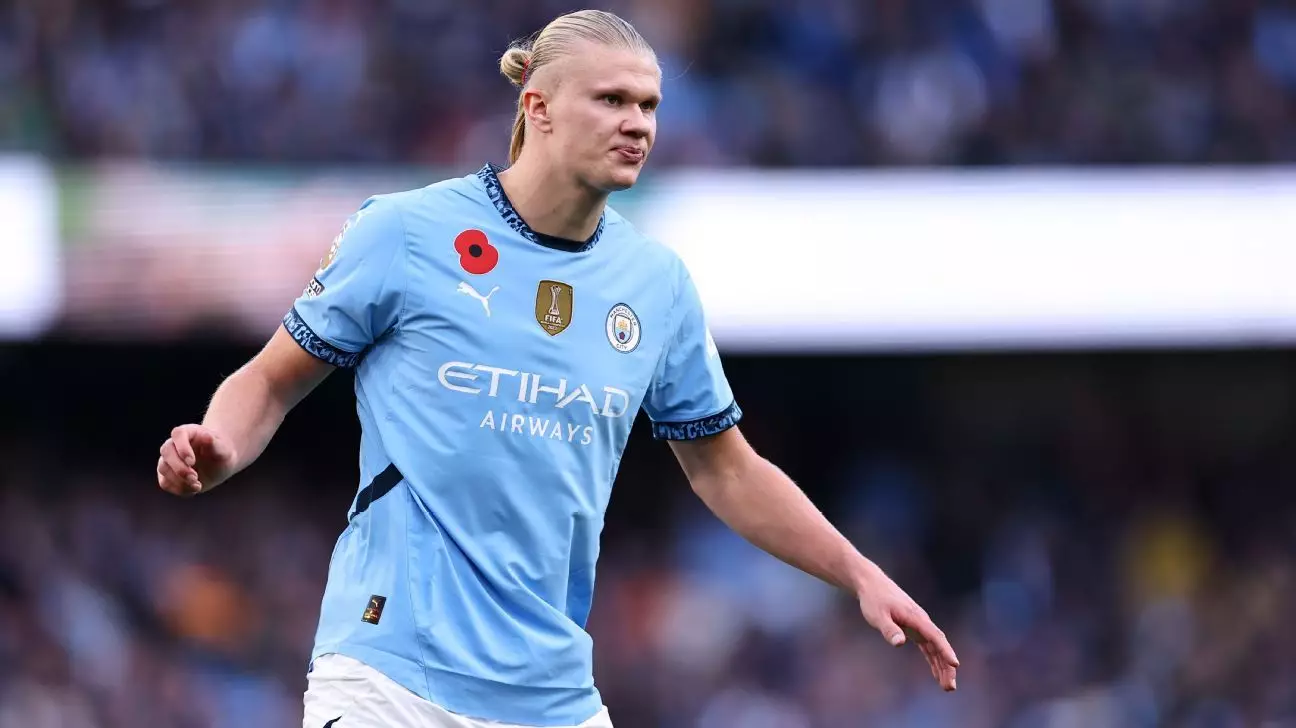In an age where individual accolades often overshadow teamwork and relationships, the decision by Erling Haaland to skip the prestigious Ballon d’Or ceremony in Paris certainly raises eyebrows. The Manchester City striker, universally recognized for his extraordinary prowess on the field, has opted instead to support his friend Erik Botheim during a critical match for Malmö. This decision not only underscores the importance of personal conviction but also highlights a growing trend among athletes who prioritize their bonds over awards that are often perceived as the pinnacle of individual success.
A Test of Loyalty and Friendship
Haaland’s friendship with Botheim, initiated during their days with Norway’s junior national team, exemplifies camaraderie that transcends competition. Their connection, which even ventured into creative realms with a popular rap video, serves as a reminder that relationships established in one’s formative years can endure and grow amid the pressures of professional sports. As Botheim prepared to face arch-rivals IFK Gothenburg—a match that could earn Malmö its second consecutive Allsvenskan title—Haaland’s choice to be present illustrates a value system that prioritizes loyalty over personal accolades. Such alliances are often overlooked in the quest for individual glory but are essential to the emotional fabric of athletes’ lives.
While Haaland’s absence from the Ballon d’Or marks a significant moment, it’s noteworthy that his accolades speak volumes. Scoring 27 goals in a season when Manchester City dominated the Premier League, he not only reinforced his stature in the football world but also built anticipation for the future. However, despite these impressive achievements, Haaland understands that titles or trophies do not capture the entirety of his journey or the impact of solid friendships forged through shared experiences.
Additionally, it’s essential to recognize that he is not alone in this sentiment. Other prominent players, such as Vinícius Júnior from Real Madrid, are also abstaining from the ceremony. Their reasoning stems from concerns regarding the fairness of award distributions, emphasizing a growing sentiment within professional sports whereby athletes are questioning the objectivity of major accolades like the Ballon d’Or.
As the professional sports landscape continues to evolve, moments like these may signal a shift in how awards and recognitions are perceived. Athletes are increasingly aware that their contributions extend beyond personal metrics, and many are beginning to value integrity, loyalty, and relationships as much as the trophies that adorn their shelves. Haaland’s absence from the awards ceremony doesn’t tarnish his achievements; rather, it shines a spotlight on the human aspect of sports—all while celebrating the spirit of companionship and support in what often feels like a solitary pursuit.
While accolades such as the Ballon d’Or are monumental in a player’s career, Haaland’s decision reflects a deeper understanding of what it means to be part of a community, proving that sometimes, friendship matters more than fame.
